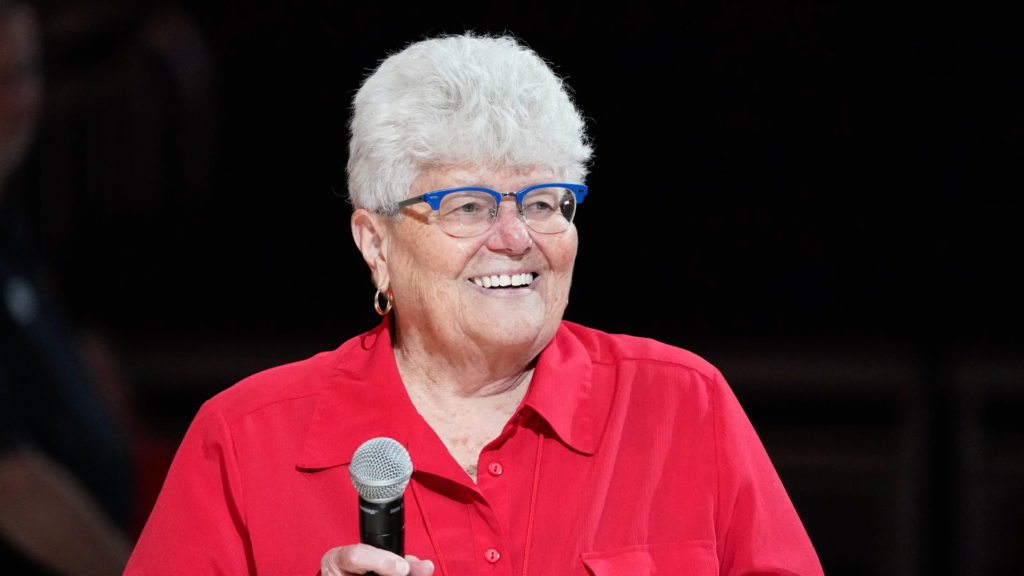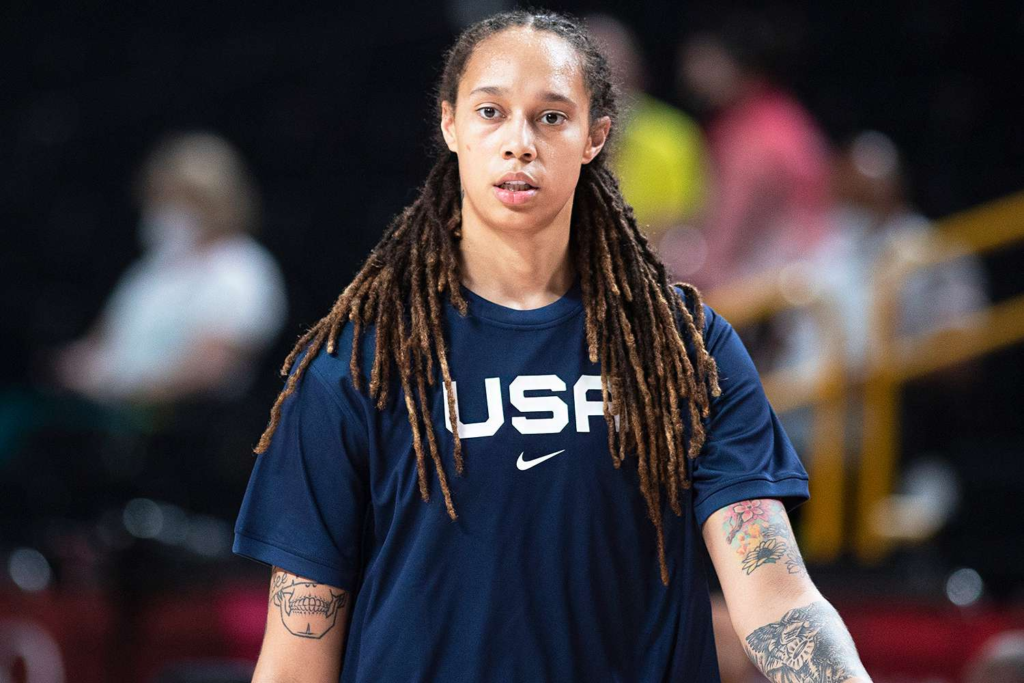Lin Dunn Calls for Brittney Griner’s Expulsion from U.S. Olympic Team: “Disrespecting the Anthem Means You Don’t Deserve to Represent This Country”
Lin Dunn, the prominent director of the Indiana Fever, has ignited a firestorm of controversy with her recent call for Brittney Griner to be removed from the United States Olympic team. Her passionate statement has sparked intense debate within the sports community, centering on Griner’s recent actions and the broader implications for athletes representing their nations on the international stage.
Dunn, a respected figure in women’s basketball and a staunch advocate for sportsmanship and national pride, voiced her discontent in response to Griner’s conduct. The renowned basketball player, who has been a vital member of the U.S. national team and a star in the Women’s National Basketball Association (WNBA), drew Dunn’s ire after demonstrating during the American national anthem—a gesture many, including Dunn, view as disrespectful.
“When you disrespect the American anthem, you don’t deserve to represent this country,” Dunn stated, expressing her outrage over the situation. Her perspective underscores the belief that national symbols, like the anthem, hold profound significance that athletes should honor when they are in a position to represent their country.

This sentiment reflects a broader expectation that athletes embody national values and pride, particularly at events like the Olympics. Griner, known not only for her exceptional talent but also for her outspoken activism on social issues, has faced backlash from various quarters for her protest during the anthem. This act is part of a larger movement where athletes have leveraged their platforms to highlight systemic inequalities and advocate for social change.
While many defend Griner’s protest as a legitimate exercise of free expression, critics argue that such actions undermine the unity and honor associated with national representation. Dunn’s call for Griner’s removal raises significant questions about the balance between personal expression and national duty. On one hand, Dunn’s stance emphasizes the sanctity of national symbols and the responsibility of athletes to foster a sense of national pride. On the other, Griner’s actions reflect an ongoing dialogue about the role of athletes in addressing societal issues and how their beliefs should influence their professional responsibilities.
The debate surrounding Griner’s status on the U.S. Olympic team taps into larger themes of patriotism, dissent, and the expectations placed on public figures. The intersection of sports and activism has become increasingly prominent in recent years, with athletes like Colin Kaepernick and Megan Rapinoe also facing scrutiny for their forms of protest.
Situations like these often highlight the tension between individual rights and societal expectations, especially when national symbols and values are at stake. As this discussion unfolds, it’s crucial to consider the diverse perspectives contributing to the conversation. Athletes like Brittney Griner are using their visibility to challenge societal norms and draw attention to pressing issues, sparking significant discourse and, at times, controversy. Conversely, advocates like Dunn emphasize the importance of unity and respect for national symbols, which many believe are essential for maintaining a sense of national identity and pride.

Ultimately, the question of whether Brittney Griner should remain on the U.S. Olympic team transcends the actions of a single athlete; it reflects society’s struggle to navigate the complex relationship between personal expression and national representation. As this dialogue progresses, engaging with the nuanced views from both sides will be essential, considering the broader implications for sports and national identity.
Lin Dunn’s demand for Griner’s removal has initiated a vital discussion about respect, protest, and the role of athletes in representing their country. This debate touches on fundamental issues of patriotism and personal belief, illuminating the evolving landscape of sports and activism in contemporary society. While opinions on this matter vary widely, it is clear that the conversation addresses these critical themes.
